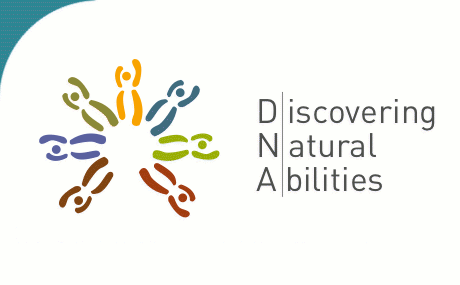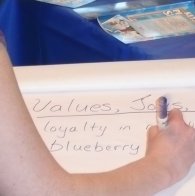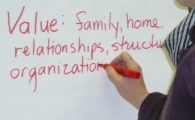Myers-Briggs Conflict Management Workshop
Who Should Attend a Myers-Briggs Conflict Management Workshop?
The Myers-Briggs Conflict Management workshop is suited to all members of an organization or group, from factory floor personnel to senior management, from volunteers to program directors.Prerequisites for a Myers-Briggs Conflict Management Workshop:
- The students needs to complete their online Myers-Briggs assessment prior to attending this conflict management workshop.
Length:
This Myers-Briggs Conflict Management workshop can be delivered in one of three different arrangements:
- Two-Day Workshop with Introduction to Type
- Two-Day Workshop with a Type Refresher
- One-Day Workshop
Sample Agenda - 2 day format with Introduction to Type
Day 1
Introduction
- Welcoming Participants
- Clarifying objectives
- Clarifying expectations
MBTI® Instrument and Type Background
MBTI® Basics
- Finding My MBTI® Type
The Eight MBTI® Preferences: Understanding and Self-Assessing
Break
Exploring Myers-Briggs Preferences Through Activities
- Exploring the preference for Extraversion or Introversion
- Activity: Free Time Fishbowl
- Exploring the preference for Sensing or Intuition
- Activity: Tell Me All You Can
- Exploring the preference for Thinking or Feeling
- Activity: What Do You Do?
- Exploring the preference for Judging or Perceiving
- Play Anytime or Work First?
Bring It All Together: Best-Fit Myers-Briggs Type
- Distribution of results.
Closing the Session Myers-Briggs Type Basics
- Questions, Comments
Lunch
Breaking the Ice: Linking My Understanding of Myers-Briggs Type to Me in Conflict
- Activity: "Me" in Conflict
Experiencing Conflict
- Activity: The Missing Piece of the Puzzle
Describing Conflict
- Activity: Introduce the conflict pairs
Break
Unique Perspectives Driven by the Conflict Myers-Briggs Pairs
- Activity: What is Conflict?
- The T-F dichotomy in conflict
- The J-P dichotomy in conflict
Closing the Session
Day 2
Introduction
Understanding Conflict Dynamics
- Conflict pair dynamics
- Activity: Introverted and Extraverted Thinking and Feeling
- Needs and contributions in conflict
- Activity: What Do You Look Like in Conflict?
Summarizing and Reviewing Conflict Pairs
- The TJ Path
- The TP Path
- The FJ Path
- The FP Path
Break
Overview of the Conflict Management Model
Creating Space
- Activity: On the Way to Work
- Activity: Making Assumptions
Adding Value
- Activity: Buying and Selling a car
Seeking Closure
- Activity: The Clock is Ticking
Clear Vision and Blind Spots
- Refining the conflict management skills model
- Clear vision and blind spots for:
- TJs
- TPs
- FJs
- FPs
- Activity: Conflict Pairs Dialogue
Lunch
Applying the Conflict Management Skills Model
- Activity: Housemate Havoc
- Activity: Team Troubles
- Activity: Real-Life Scenarios
Break
Developing an Action Plan
- Activity: How to Alter Your Conflict Management Approach
Closing the Myers-Briggs Workshop
Myers-Briggs After Class Support:
After the Myers-Briggs Conflict Management Workshop is completed, additional consulting time can be purchased to help make turn this information and techniques into standard practices.Myers-Briggs Workshop Materials:
- Myers-Briggs Assessment
- Workshop notes
Myers-Briggs Workshop Location:
Myers-Briggs Conflict Mangement workshop locations should provide conditions conducive to openness and learning. Due to the nature of the content of the True Colors Workshop, participants are required to explore their deeper views and beliefs and to engage in a high level of self-disclosure. The ideal setting is one in which,
- Participants can remove themselves from the workday world and stretch their mind without interruptions
- There is natural light and a feeling of openness
- There is room for breakout discusions (breakout rooms are not required if separate workgroups can meet without crowding each other)
We can help arrange the meeting for your location or work with you to select an appropriate offsite meeting location.
Note: offsite locations may result in additional costs.




